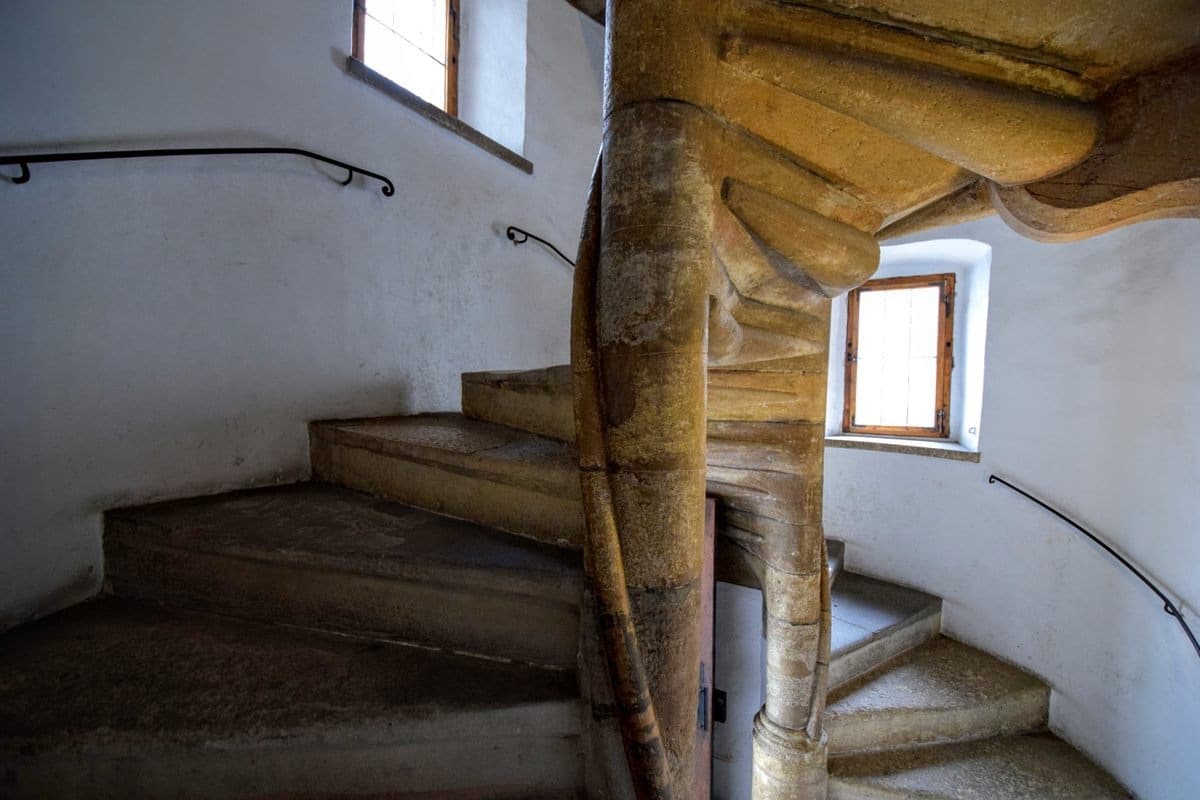The Double Spiral Staircase: A Marvel Of Medieval Engineering In Graz, Austria
The Double Spiral Staircase is located in the historic Burg, the official headquarters of the regional government in Graz, Austria.
This masterpiece was completed in 1499 and is locally known as the “Doppelwendeltreppe.”
It has fascinated visitors for centuries.
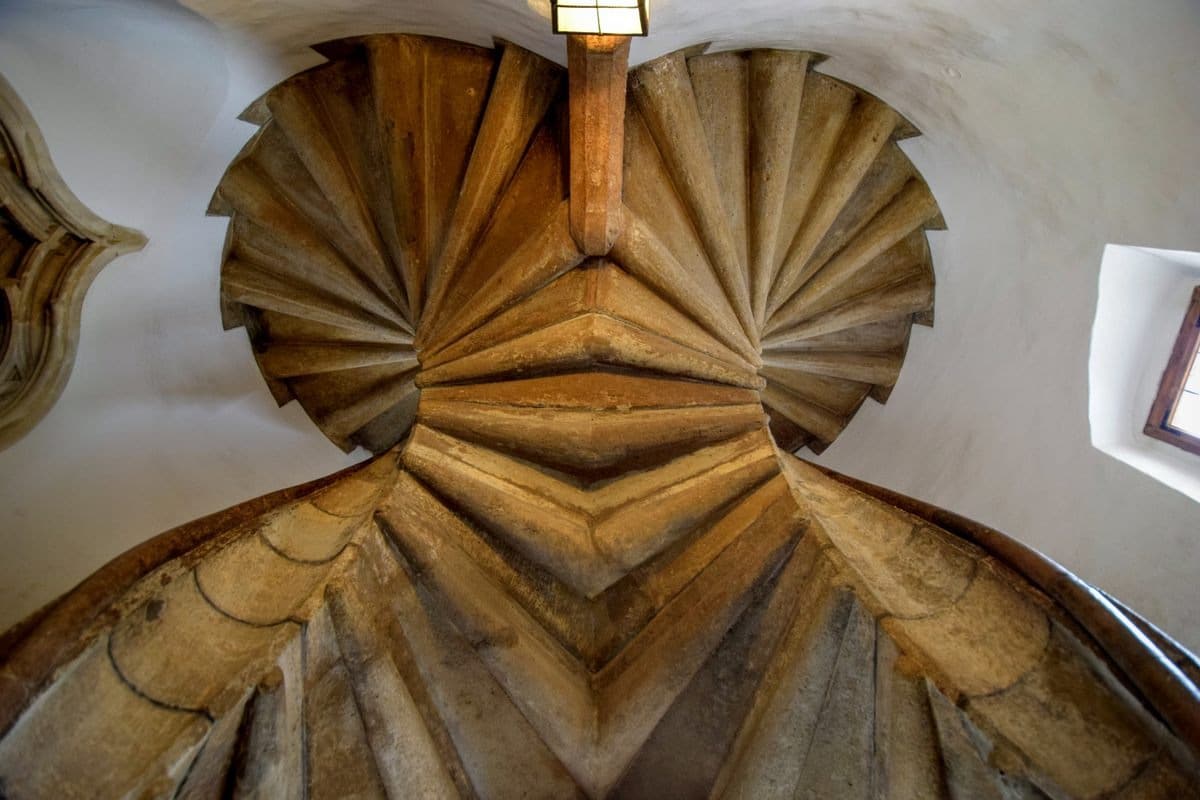
Who built the Double Spiral Staircase?
The Burg itself has a rich history. It was originally constructed under the guidance of Holy Roman Emperor Frederick III in 1438.
The building was later expanded by his son, Emperor Maximilian I, between 1494 and 1500.
This expansion included the addition of the remarkable Double Spiral Staircase.
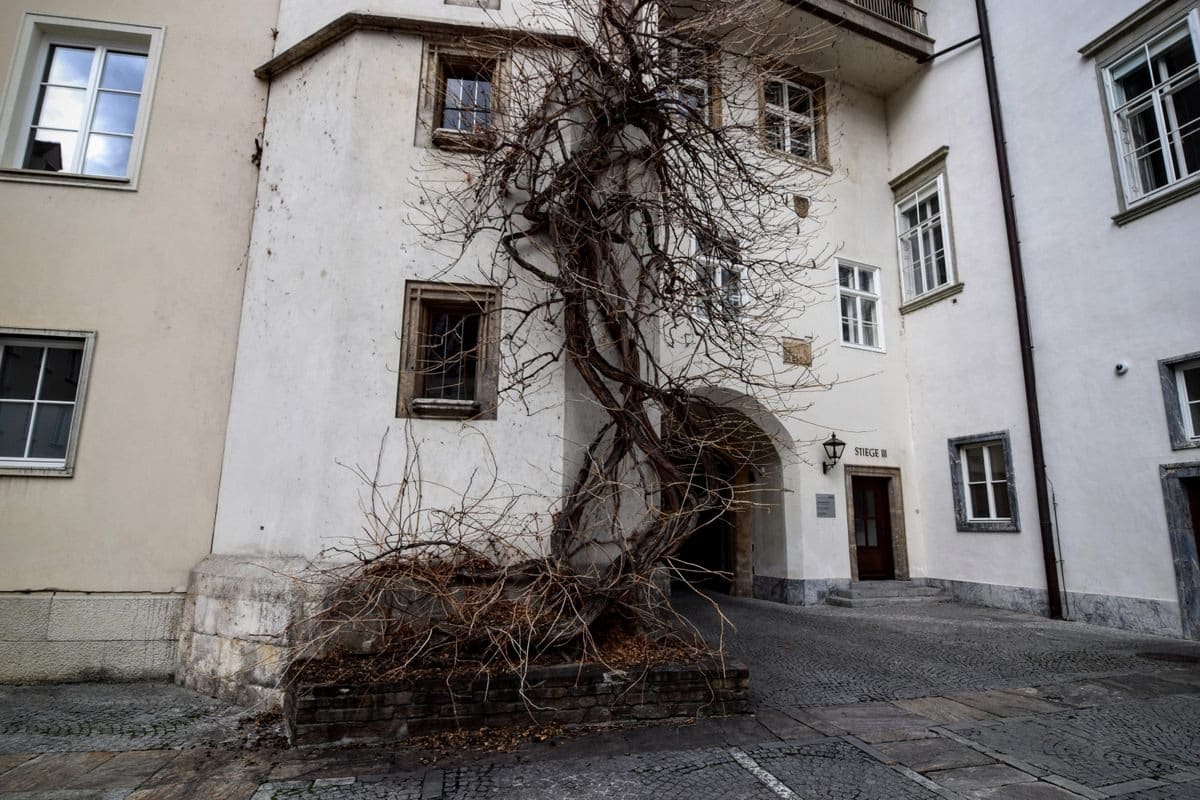
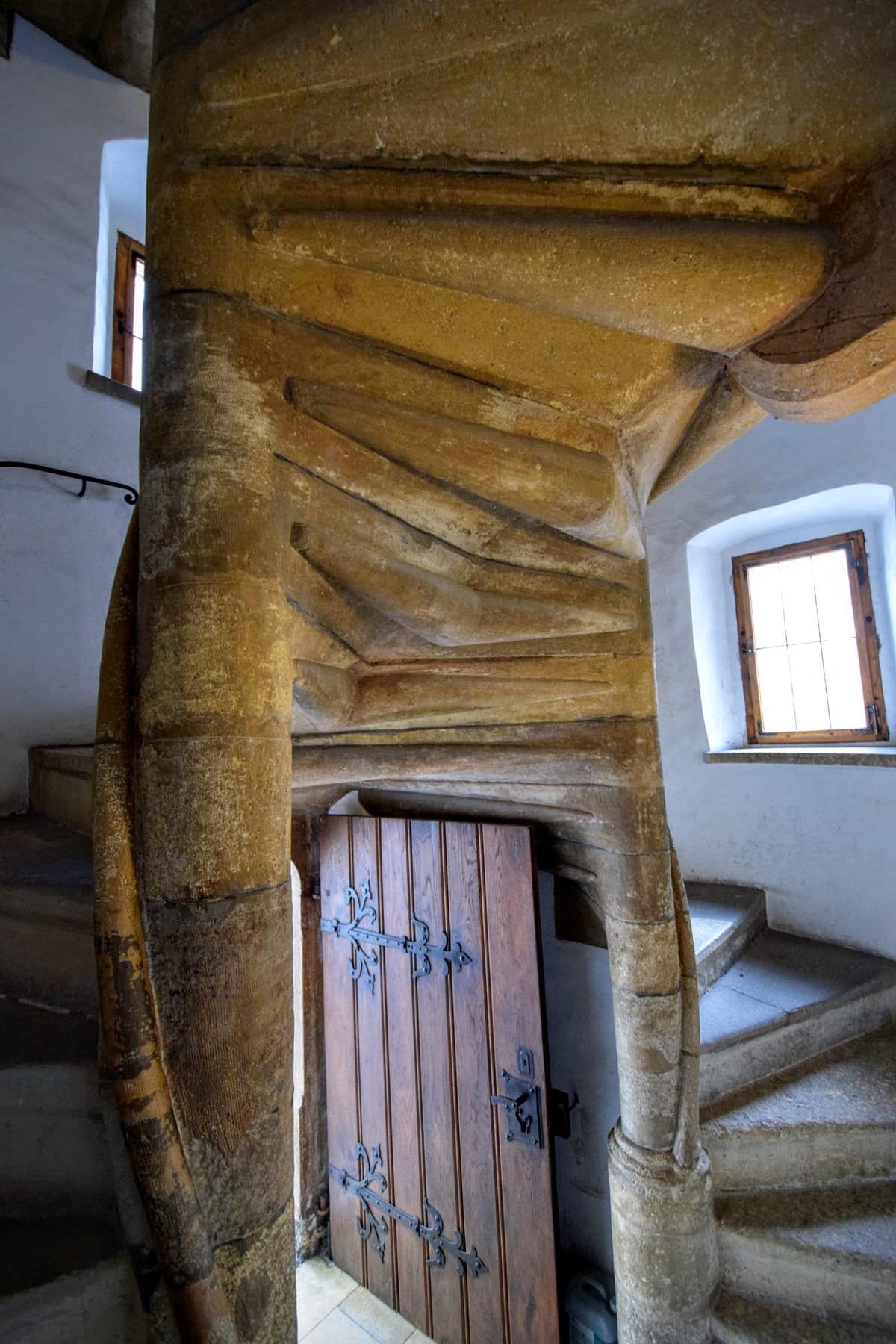
Frederick III also left his mark on the building with the mysterious inscription “A.E.I.O.U.” on several facades, a motto he coined in 1437.
While its meaning has been the subject of much speculation, a recent theory suggests it stands for “Amor Electis, Iniustis Ordinor Ultor,” which translates to “Loved by the Chosen, Feared by the Unjust.”
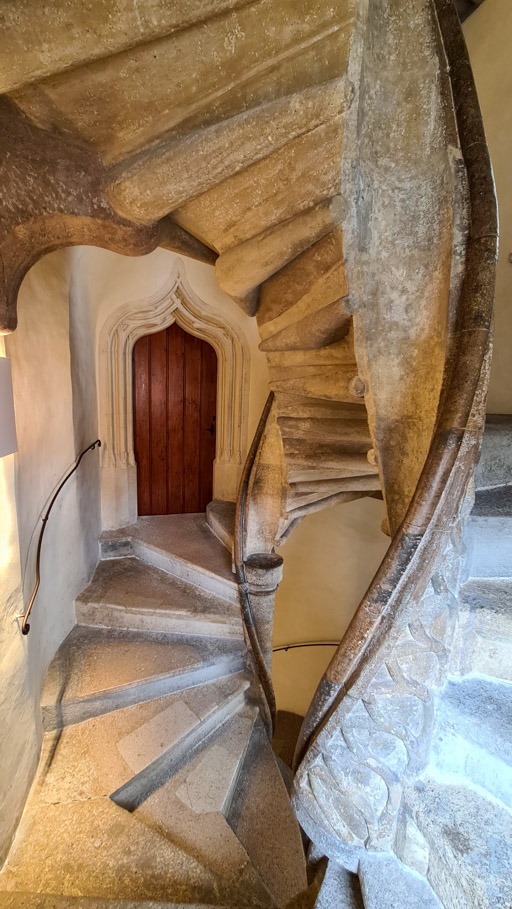
Architecture
The Double Spiral Staircase consists of 2 flights of stairs that spiral in opposite directions and reunite on each floor.
This unique design creates an optical illusion, making it seem almost like a living, moving structure.
Locals affectionately call it the “Stairs of Reconciliation” because, although the two staircases diverge, they always come back together.
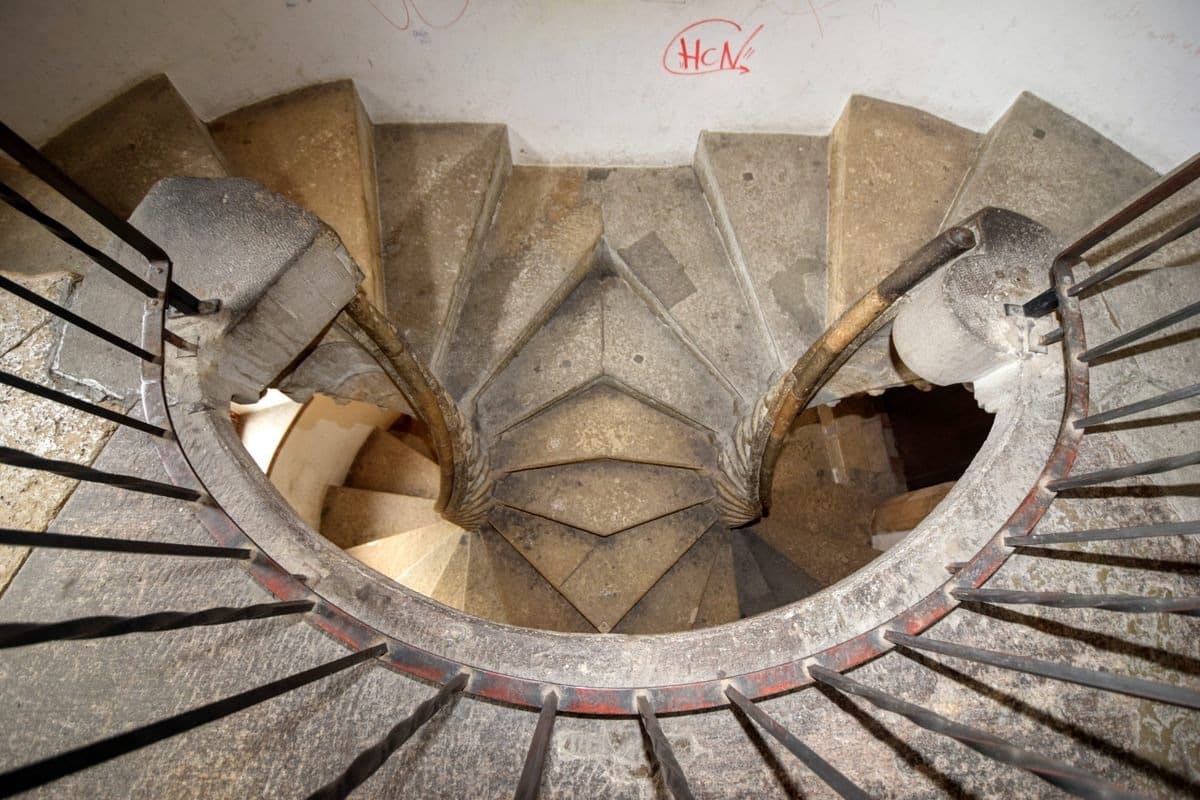
Symbolism
Many interpret the intertwining staircases as a symbol of eternity, representing the cyclical nature of life and time.
The staircase allows people to ascend and descend in different directions, yet still meet at each level, symbolizing the idea that paths may diverge but ultimately come together.
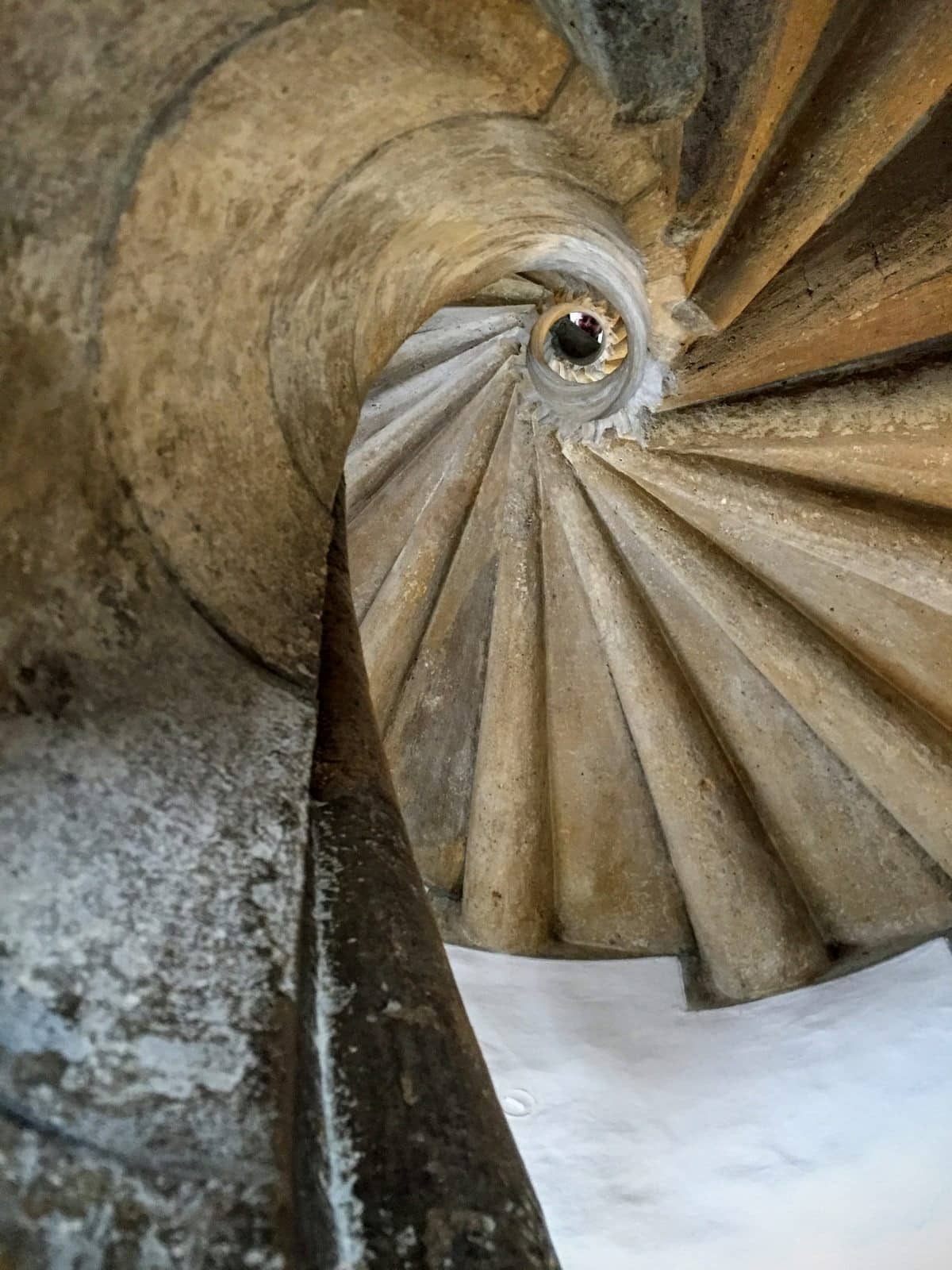
Visiting the Burg and the Double Spiral Staircase
Today, the Burg remains an active government building, but its doors are open to the public.
Visitors can explore the staircase and the rest of the historic building, which features elements from the Gothic, Renaissance, and Biedermeier eras due to centuries of reconstruction.
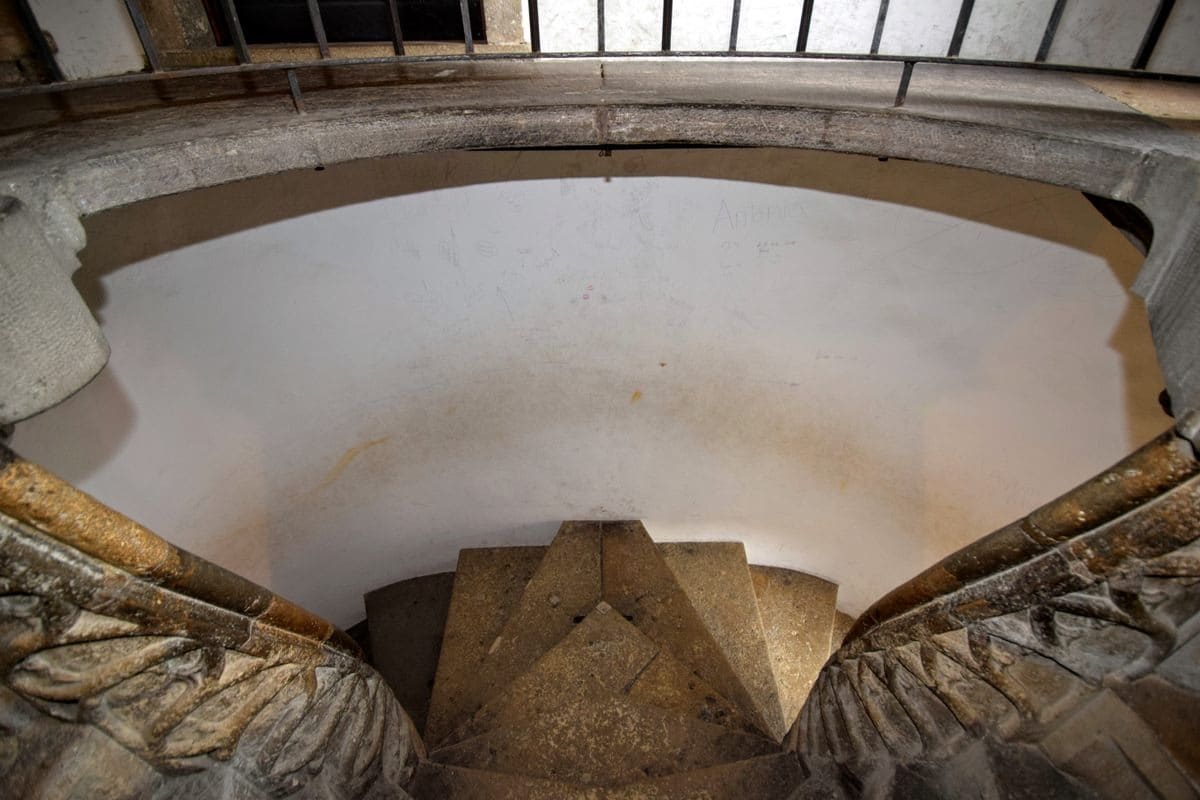
The Burg’s opening hours are daily from 7:30 am to 8:00 pm, and admission is free.
